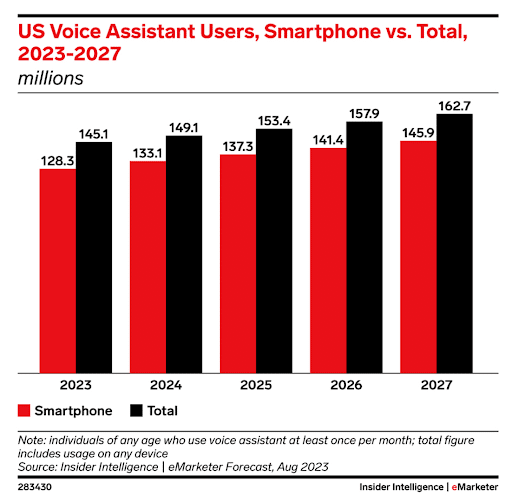Just as digital keeps evolving, so too should marketing agencies. Between repeated algorithm changes that impact everything from search rankings to social feeds — and the challenge of wrangling vast amounts of data — marketing agencies that remain static in their approaches face an uphill battle.
If your agency is looking forward with the goal of becoming more dynamic, here’s what to know about current challenges and trends, plus some tips for staying competitive.
How to Create Genuine Native Content
Current Challenges Facing Marketing Agencies
Dynamic marketing agencies are no strangers to change. They have to pivot with every algorithm change, find new ways to glean insights from data, and stand out among a broad swath of competitors and creators.
Algorithm Changes
Ongoing algorithm changes, particularly with search engines, have left many marketing agencies pivoting unexpectedly to appease and retain clients. In some cases, these unexpected changes have forced agencies to adopt new strategies to help clients reach their intended audiences.
Data Wrangling
Now more than ever, marketing agencies are collecting data through many channels, including website analytics, various social media platforms, customer relationship management (CRM) systems, and email marketing tools. While this abundance of data represents a key opportunity for agencies to tailor their campaigns, it can be difficult to wrap your arms around the data because there is simply so much of it.
Standing Out
While this has been true for years, millions of brands and creators are competing for attention across social media and search. It represents an ongoing challenge for marketing agencies that want to help their clients stand out from competitors by developing creative and authentic campaigns.
Key Trends Shaping the Future of Marketing Agencies
Understanding and embracing key trends can help marketing agencies handle the challenges of the ever-more-dynamic marketplace.
Social Media as a Search Engine
More people are using social media — and relying on it to find products and information more than ever before. Data from Morning Consult shows that in 2023, 53% of Gen Zers spent an average of four or more hours per day on social media, about the same amount of time as in 2022. Plus, Google execs have revealed that approximately 40% of Gen Zers now use platforms like Instagram and TikTok to get recommendations for nearby restaurants instead of Google Maps or search. Here is an example of a TikTok search query for Italian restaurants in Boston:

Moving forward, marketing agencies need to strategize on the best ways to use popular social platforms to engage with younger audiences or risk being left behind. Explore some of our tips to create content for social media.
Social Shopping
Social shopping has become another popular concept, with large and small social media influencers promoting products and services in their videos. Platforms including TikTok and Instagram have dedicated in-app shopping tools allowing users to shop and make purchases without ever leaving the platform. Consider these examples from TikTok, where we did a basic query for the best face cleanser for dry skin. Note that TikTok shopping appeared at the top of the results, followed by influencer recommendations:


Social shopping creates a streamlined, frictionless customer experience. Given that younger audiences, in particular, spend so much time on social platforms, focusing on in-app social shopping could be a lucrative opportunity for marketing agencies in 2025.
Authenticity and Brand Messaging
Creating authentic campaigns remains a challenge for marketing agencies in a crowded digital landscape. With millions of brands competing with each other online, focusing on authenticity in brand messaging is critical. Agencies need to focus on conveying clients’ values and messaging consistently and transparently. Both millennials and Gen Zers report that authenticity is a key factor in their buying decisions, according to a 2024 OneCliq report.
Technologies Shaping Marketing Agencies
Moving forward, automation, AI, and voice search will continue to influence how marketing agencies strategize and execute campaigns.
Automation and AI
Automation and AI are key for marketing agencies, both today and looking forward. Used well, these tools can help teams wrangle data and glean insights from it, target their campaigns, analyze campaign performance, and streamline time-consuming tasks to improve efficiency.
Voice Search
While voice search has been a thing for a while, it continues to grow in popularity. According to eMarketer data, Gen Zers and millennials are the most frequent voice-search users, and there are around 150 million people of all ages using voice assistants, including smartphones, smart speakers, and smart TVs to search for information. By 2027, more than 162 million people are estimated to be using voice assistants.

Connecting with this audience could mean adjusting your SEO strategy to focus on more natural-sounding queries instead of basic keywords. For instance, you might explore terms like “where can I find a bakery nearby?” instead of “bakery near me.”
How Agencies Can Stay Competitive
Embrace AI
Many marketing agencies have dabbled with automation and AI, but have not fully embraced these technologies. Make next year your opportunity to integrate automation and AI into your business in a meaningful way. While strategizing how to do this will likely take some time, thoughtful integrations could help you with everything from data analysis to simplifying tasks like social media posting and scheduling, and more.
Optimize Tech Stacks
You’re likely using several technology tools to keep your business running. If you’re relying on older technologies to collect data, launch campaigns and track performance, it might be time to audit your tech stack.
Consider whether the older tech you’re using is still serving you well, or if a newer technology might open up more opportunities for your business. Look at things like platform integration. Do your current technologies sync well with one another? Or are fragmentation issues causing inefficiencies and mistakes? If you answered yes to the latter, it’s likely time to explore some new technologies.
Prioritize Top-Tier Talent
In a competitive landscape, attracting and retaining top-tier talent is essential to your business’s success. According to the World Federation of Advertiser’s recent Future Media Agency Models Report, 97% of agencies cite access to talent as a top priority for the future.
Marketing agencies often fall into the trap of focusing on “full-stack” marketing roles, which require candidates to possess a broad range of skills instead of one or two specialties. Assess your talent-acquisition strategy to determine if this is a problem for your agency. And if it is, focus on more specialized roles to attract great employees, pay those employees well, and set achievable goals to boost retention.
Key Takeaways
The shifting digital landscape is a story as old as online marketing agencies themselves. That said, new challenges, trends, and opportunities present themselves as things change. Looking forward, remaining competitive will likely mean:
- Embracing automation and AI.
- Optimizing your tech stack.
- Assessing your business’s talent-acquisition strategies to attract and retain great employees.
While change is hard, we have some good news: No matter how the landscape shifts, retaining top-tier talent will remain a competitive differentiator for years to come.
Frequently Asked Questions (FAQs)
How is AI transforming the future of marketing agencies?
AI is transforming the future of marketing agencies in several key ways. Most notably, AI is making it easier for marketing agencies to analyze large amounts of data. It can help agencies better understand user behavior with regard to past campaigns, then use that information to tailor their messaging and content for future campaigns.
Will traditional marketing methods disappear?
No. Traditional marketing methods are unlikely to disappear, but they are likely to evolve. For instance, more traditional methods such as television commercials or print ads might be intertwined with a broader digital campaign. Traditional campaigns may also become more targeted to audiences in areas where internet access is more limited.



